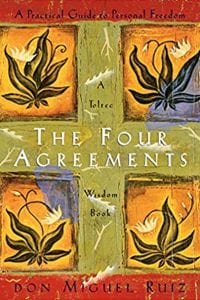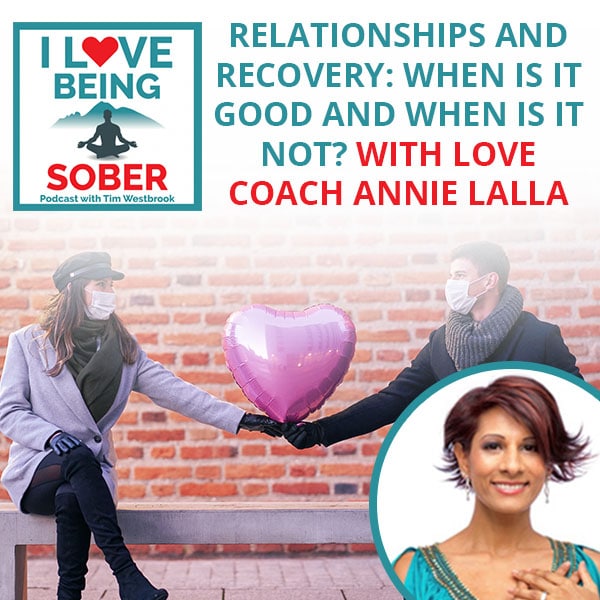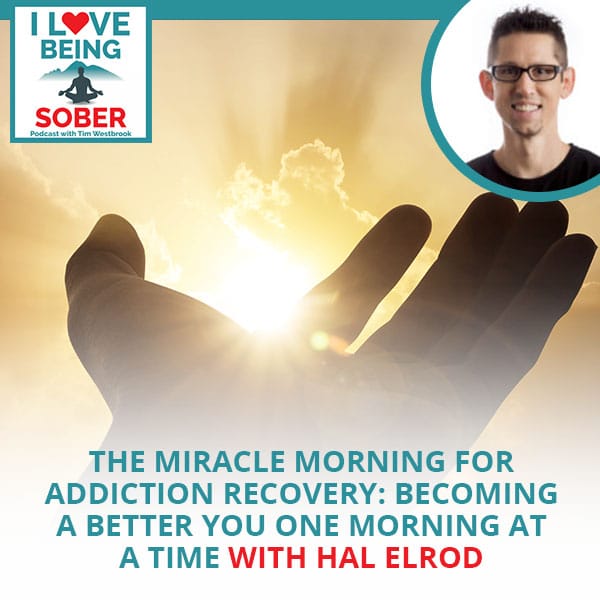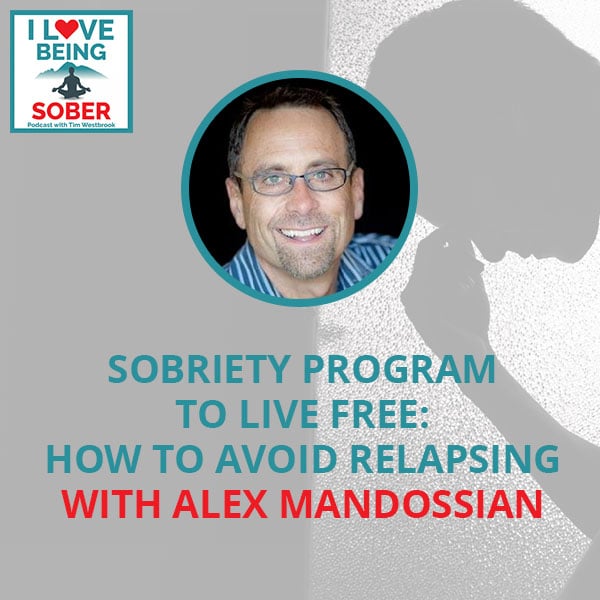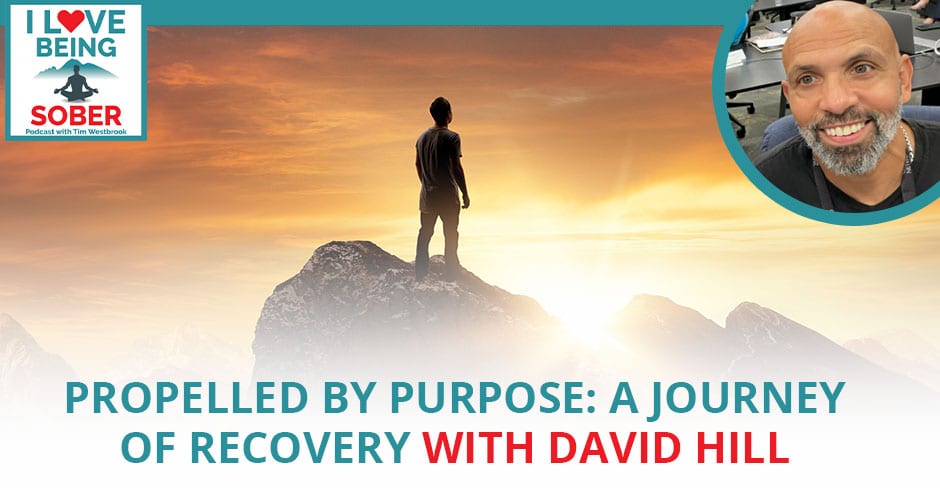
Recovery from addiction takes many paths, and one path is recovery propelled by purpose. You have to be prepared to change and find your purpose in life. In this episode, Tim Westbrook interviews lead generation expert and recovering alcoholic David Hill about his journey towards sobriety. David talks about what pushed him towards alcoholism and the spiral of abuse that pushed him towards alcohol. He talks about what brought him to the path of recovery and shares insights on what you need to do and keep doing to continue walking on the road of sobriety.
—
Watch the episode here:
Listen to the podcast here:
Propelled By Purpose: A Journey Of Recovery With David Hill
We started this show because there’s so much misinformation about addiction, treatment, mental illness and recovery, in general. There’s so much more to recovery than just going to inpatient treatment, going to twelve-step meetings and seeing a therapist. All those things are important and AA saved my life. However, to find long-term recovery and live happy, joyous and free, there’s a lot more to it than just stopping the drinking, the drugs, the sex addiction or any addictive behavior for that matter. To live a new life, a person needs new healthy lifestyle habits amongst other things.
Typically, this includes new eating habits, exercise, sleeping habits, new hobbies, interests and friends. Self-care becomes a priority and the list goes on. Those are the types of things that we talk about here on the show. I’m here with David Hill. David has been a lead generation expert for many years. He’s a real estate entrepreneur, podcast host of Path to Mastery, husband and father of three amazing daughters, triathlete and he’s been clean and sober for many years. His purpose in life is spreading his message of hope and prosperity from where he came from to where he is going. David, welcome to the show. I’m so glad to have you here.
Thanks. I appreciate it, Tim. It’s good to be here.
How did you end up as an alcoholic or an addict? First off, what was your drug of choice?
I was lucky that I never graduated above cocaine or any of that. I never did crack, anything with needles or any of that stuff. I’m blessed that I never went there. In the end, I did a lot of cocaine. Drinking was always my drug of choice but in the end, I thought I figured out that if I could do enough cocaine, I could keep myself level enough so that I wouldn’t get in trouble, blackout and do crazy stuff. Even in the end that even failed me. It was a mess.
How did it happen to you? How did you become an alcoholic?
[bctt tweet=”Just because you grew up a certain way does not mean that has to be your trajectory in life.” username=””]I don’t know. That’s an interesting question. I have friends that say, “You’re born an alcoholic. It’s a product of your upbringing sometimes.” I think that might’ve played into it with me because my father was an alcoholic and he drank a lot. He was very abusive, beat me and my mother. He puts marijuana around the house and alcohol. My mother drank a lot as well. It was around me. I was shy as a kid. I wasn’t a good communicator what I went through with my dad. The first time I drank, it was like I came outside of my shell. I was this shy, introverted kid that didn’t have any self-confidence and didn’t know how to communicate the right way.
When I drank, it did something to me. This new person came out. I could now talk, dance and do all this stuff. I absolutely loved it. I remember my first drink. I went to a football game with a bunch of guys and girls. I didn’t start drinking until I was older. My first drink was around close to sixteen so I didn’t start young. I started at a later age. I blacked out. I fractured my ankle. The next day I had a girlfriend. The whole thing was crazy. I know it seems all over the place but I don’t know. My dad created a mess and that’s what I was. I was a frigging mess. To my mom, to an extent, created this messy kid who couldn’t communicate the right way and didn’t have any self-confidence. Once I got that alcohol in me, I was a different person. I loved it. I had fun. I could talk and I wanted more. That’s it. It’s a sickness. It’s more drug.
Are you familiar with The Four Agreements? I got done reading that book again for the twentieth time. I think about being domesticated. We’re all domesticated. You were domesticated in your household by your parents and by the people that you’re around. You learn how to live a certain way and that’s how you lived. Clearly, it didn’t prepare you for life is what I’m hearing. Would you agree with that?
I was not prepared for anything. I was prepared for jail. I found myself locked up. I didn’t think I was a bad person but I found myself in a county jail in the house of correction at nineteen years old, surprised and probably scared for the first time in my life because I couldn’t go home. There was no leaving and the reason being is I didn’t have coping skills. I didn’t have ways of communicating, telling people, “I don’t like the way that makes me feel.” Instead, I became very abusive. My father taught me kickboxing at a young age. That’s what he taught me.
This is crazy but you got a kid that is being taught when you’re being beaten and you cry, you’re beaten harder. Clearly, I’m not able to communicate because, as I’m being beaten, if I’m going to cry then I’m beaten harder. That tells you my level of ability to share my feelings and then teaching me kickboxing. I’m half black. My father is black. My mother’s white. This is back in the ‘70s and ‘80s. I’m not fitting in anywhere because there’s racism everywhere. We lived in primarily white neighborhoods most of my life, which was a blessing in the end because my mother got us away from my father. I dealt with a lot of that. I didn’t know how to deal with it except for, “You’re not going to talk to me like that.” I became very aggressive and I knew how to fight.
If you can imagine the combination of this kid and just everything I shared. It wasn’t a good, effective combination for creating productive human beings. I ended up in court multiple times. The last time I went to court at nineteen, I didn’t leave the courthouse. I was surprised. I ended up spending eleven months in county jail. I’m blessed that happened because it was the beginning of a wake-up call for me. I didn’t kill anybody. I didn’t kill myself. I didn’t end up in state prison, which is the real deal for people that have been locked up. There’s a big difference between being in county jail to being in state prison.
Usually when people are in the system, when they end up in jail, typically they end up back in jail for the rest of their lives, in and out. Is that accurate?
It depends on the person. I know people like me that did time. When they got done, they changed their life and didn’t have to do it again. They use that as an opportunity to grow and be a better person. A lot of people I grew up with, Tim, frankly are dead. They’re in jail or live completely mediocre lives like I growing up, frankly.
How were you able to turn your life around?
I was sick and tired of being sick and tired. I know that’s cliché AA term. I got out in 2001 when I got out. I wanted to change but I couldn’t. I want it to but then I went back to my old buddies. I shared this with you before I went to a cake party. I brought twelve-pack of O’Doul’s with me. That was my mindset. Before long I was drinking the O’Doul’s and I was filling O’Doul’s from the keg and not realizing how people knew that the next morning. I got in trouble again. This time around, they wanted to give me some real-time. I got lucky. I don’t know if it was maybe my 90-year-old grandmother who came to court with me and my mother used to go into court with me.
They hired the best attorney they could and the court system gave me a break. They said, “We’re going to let you do this six-month alcohol rehabilitation program as an alternative to go into jail because clearly you have all these people here that care about you. We’re going to give you this break but after that, you’re on probation for 3.5 years. If you get in trouble for 3.5 years, you’re going to do 2.5 years with two years on and after, which means now you have some real time to do.” They didn’t expect me to stay out of trouble.
I didn’t expect myself to stay out of trouble for 3.5 years. I couldn’t stay out of trouble. I was getting arrested almost once a month for something whether trespassing, assault and battery, drunk, all kinds of stupid stuff. For whatever reason, I went to that rehab center in Western Mass. It was called Howard Street. There was this little black lady out there. The corrections officer’s name is Clinton. He took me into an outside meeting in downtown Springfield. I had a bad attitude back then but I was in a place where I didn’t like my life anymore.
I wasn’t feeling good about my life and where I was. I did want to change. When I went out, Tim, I wanted to go out and have a good time. The intention was not to go out and get in a fight, not to get arrested, not to crash my car and not all that stuff. It was to go out and have a good time. For whatever reason, the good times were further and fewer in between than the bad time. I knew something was up. I was starting not to like my life. I ended up in Howard Street. This little black lady on an outside meeting convinced me to get on my knees. She grabbed me by my arm and asked me if I wanted to get sober. I said, “I didn’t.” She said, “You need to humble yourself. You need to get on your knees.”
I was like, “Sure. Whatever.” She said, “No.” She held on. She was like, “I want you to understand what humbling yourself means is it means you’re lowering yourself to something greater than yourself. Are you willing to do that?” There’s nobody in the world that could have delivered that message to me at the time. I was angry. I weigh 170 now. I weighed about 195 then all muscle, a nutcase. Nobody in the world could have delivered that message to me except that little old black lady. I went back that night to Howard Street and I put my knee on the floor. That was the beginning. When I first did it, I wanted to make sure no one saw me either. I didn’t want anybody to see me doing it. I put my knee on the floor, quick, jumped back up and that’s where it all started. I’ve been doing that. That’s the one thing I’ve done every single day now.
[bctt tweet=”The first step is the awareness that you want to do something.” username=””]What specific incident inspired you to be so passionate about spreading your message of hope and prosperity from where you came from, where you are and where you’re going? You’ve been sobered for many years. Your life wasn’t what it is now. You have so many amazing things going on. You’re a triathlete. You’re a podcast host. You’re married. You’re successful in business. You own a business and your life now looks a lot different than how it looked when you first got clean and sober. Now you’re spreading your message of hope and prosperity. What made you decide that you wanted to start doing that?
When I got sober and once I got out of Howard Street, I did that six months then I had to stay out of trouble for 3.5 years.
Howard Street was the rehab that you went to?
Yeah. Howard Street was the rehab in Western Mass. It’s a casino now, by the way. They knocked the whole place down and now that’s where the casino is in Western Mass. I got home. It wasn’t right away. I wanted to change my career. I’ve always been in sales. I went into real estate. I got my real estate license. I wanted to change. I wanted to be a different person. I changed the people I hung out with. I forget who it was but somebody found out I was sober. They asked me to come. There were a bunch of us talking to a group of kids at an elementary school.
That’s where it all started. We went in. We talked to the kids and it was fun. I had kids come up to me after. Back then she was the superintendent but she came and said, “Would you be willing to do that at this school? Would you be able to do that at North High School?” I ended up being this guy that went to the schools and it was amazing. I honestly should still be doing that. I don’t know how I got away from it but that’s ultimately where I started. I started talking to some kids at the schools and then it led to other things.
I became successful in my business. I had to learn how to become a better leader. I had a focus on leadership skills and on becoming a better communicator. I had to educate myself so I started taking different college courses, Dale Carnegie Effective Communication and all these other things. I had to start working on this. I was sober but I was still a broken person on the inside. I think that’s one of the things we struggle with in life. When you look at my message, I’m propelled by purpose, meaning I have a purpose. Other kids, young adults should not have to go through what I went through.
I have three daughters. They will never see anything like that. As a matter of fact, the life they have to them, it’s normal to have a nice big house and pool, the whole deal. We lived in a car growing up. That’s what I did. They go to the schools they want. It’s amazing that I can do that. I want to get out there and share the message that I can of hope. One of the things I’ve always said is, “Because this is the way you grew up does not mean that has to be your trajectory in life. That does not have to be where you stay.” I think that’s one of the biggest struggles is most people I know weren’t able to break out of that.

Recovery Propelled by Purpose: We just have to get out there and be positive and let people know that just because this is what you came from doesn’t mean that’s how we have to stay.
I don’t live in Worcester anymore. I grew up in Worcester. Worcester is the city where I am. We’re about 30 miles West of Boston. It’s a city in the North side of the city. It’s where I grew up as a kid. That’s where we lived and I can drive through it. I’ll see people that I knew that they look like they’re 65, 70-year-old men without teeth and stuff because they haven’t taken care of themselves. Half the other ones are locked up or in prison. I want to let people know that doesn’t have to be you. You can put a productive life together. You can do big things in the world. I’m getting started, in my opinion. It took me 17, 18 years to clean up the mess in here so that I can get started now. That’s truly what I believe. I’m just getting started.
They grow up in a certain environment. Going back to The Four Agreements, you’re domesticated and programmed to live life a certain way. You’re raised around these people. For most people, it’s impossible to get out of that. What suggestion do you have for the person that wants to get out of it? How do you level up your life?
It comes down to being sick and tired and to a place where I was very disappointed in my life. I remember sitting in that little room at Howard Street and saying, “This is where my life is right now. I’m in this room. I’m in a six-month alcohol rehabilitation center as an alternative to being locked up. If I make any mistakes, I’m being locked up for 3.5 years.” That was as good as it got for me. That was when I woke up like, “My life’s a mess.” I think the first step, Tim, is the awareness that you want to do something. The courts couldn’t make me do anything. My mom cared about me and couldn’t make me do anything. All the women I dated when I was younger couldn’t make me do anything.
It had to come to the point where I was ready to do something and that was when it started. Once I opened my mind, “I want better for myself.” I got involved in a program. I got a sponsor. I went through that whole program but when I got out was the most important part. When you’re in there, there’s nothing you can do. You’re stuck. There’s a guard. There are people that if you leave, they’re going to grab you and throw you in jail. It’s when you get out that is the critical part. You got to change the people, places and things. That’s the most important part.
I don’t know if I shared this story with you. I think I may have where I was telling my sponsor, Fred, he’s still my sponsor several years later. I found him in about 1.5 years sober and he’s many years in sobriety now. I used to drink at a place called On The Rocks. I don’t know if I shared this story with you. Whenever I drive by On The Rocks, I’m feeling weird, getting anxiety and like, “I want to stop in.” He’s like, “Stop freaking driving by On The Rocks, find another route. That’s it.” Simplify my life. How simple is that? I’m like, “Shit, it’s that simple.” I’m oversimplifying things but the reality is you have to change the people, places and things. You know this. You’ve been sober a lot of years.
If you don’t change those then we’re never going to change. We can’t. The first thing is desire. I know my life’s crap. I’m done. You have to humble yourself, give up and then you have to change the people, places and things. I would encourage everybody to get involved in some type of program, a twelve-step program. I chose AA. It has been my program. I still go to three meetings a week. Several years later, still three meetings a week like clockwork, two retreats a year. That’s what I do. It’s my routine.
I know a lot of people want to hold on to their friends. They want to hold on to certain pieces of their old life. You can’t. My experience is that everything has to change, new friends, new hobbies, new interests, new eating habits, new sleeping habits, new exercise habits. Everything has to change in order for someone to get clean and sober. I think it’s scary because it’s outside of a comfort zone. It’s not what they’re used to doing. It’s not how programmed to live life. Getting involved with a recovery program, like a twelve-step program and then surrounding yourself with different people that have what you want. You find people that have what you want, you spend time with them and you do the things that they do. It’s very simple. If you go back and you do the things that you used to do, you’re going to wind up drunk or high because that’s what happened before and that’s what’s going to happen again. Your biggest suggestion for the newcomer, if I’m hearing you correctly, is to change the people, places and things.
[bctt tweet=”You can put a productive life together. You can do big things in the world.” username=””]You have to. It’s impossible to do it without doing that. I had to break a relationship. This was one of the toughest things I did in my life. I’ve been with my wife for several years. We’ve been married for a few years now. Before that I was with Jessica, my drinking buddy. She was fun. We had a lot of fun together. We were together for a lot of years. When I got sober, she decided she was going to get sober. Around two years into sobriety, she decided she didn’t want to get sober. She took off. She was gone. I found out she went to the casino with a guy. I was out of my mind. I was such a codependent person too. If I would’ve found her, I probably wouldn’t be in this car because I would have probably killed her and killed the guy she was with. That’s how I felt I was even at two years of sobriety, to be honest with you but I didn’t. Thank God.
I was driving around. I had no license back then. Looking for them everywhere. I couldn’t find them. My sponsor, Franny, I finally called him. I told him what was happening. He said, “Go home. I’m going to come to pick you up in the morning. We’re going to have coffee.” He said, “Promise me you go home and we’ll have coffee in the morning.” I said, “All right.” I did. Going home and having coffee with him in the morning probably saved my life. I went home. He picked me up in the morning and we went out to coffee.
One thing he said to me, I never forget. He said, “She’s going to pull you out of the boat before you can pull her in the boat. I want you to think you’re in a canoe or a kayak. You never going to be able to pull her in the boat. She’s going to pull you out in a boat before you can pull her in the boat.” That was the message that you were right. I contemplated I’m going to start drinking again so I could stay with her. I didn’t do it because I had a good sponsor and a good support system. The reason I bring that up is that it was first off. It’s one of the toughest things I dealt with in sobriety, that relationship.
I was with her eight years before I even got sober. We had a lot of fun together. We were drinking buddies. We had done a lot of things together but once she decided to go out, I had to separate myself. I had to remove myself from that relationship or she was going to pull me out of the boat into the water with her. If you think you’re going to go back and hang out with your old buddies, you are mistaken. I’m letting you know that now. If you think you’re going to go back and hang out at the bars and drink a soda, you got to change everything, people, places and things.
Is there a question that you’ve always wanted to be asked but the interviewer never got around to it? If so, what would that question be?
I’ve never gone as deep into an interview, by the way since the first time I’ve shared at the level I have. I’ve never shared about being locked up before because I don’t know. I’ve been ashamed of it but the reality is its part of my past. People want to hold it against me and then hold it against me. It doesn’t matter at this point. I don’t mean people in sobriety. People in sobriety now are going to hold it against me. It’s going to be other people that maybe can’t relate to some of the stuff I shared. I don’t know. That’s a good question. I think you covered it well. My message for the people reading, there’s so much more out there than we give ourselves credit for and then the only way we can ever receive that is to be open to it.
You elaborated on being conditioned as a kid to be a certain way. I don’t want anybody else to ever have to go through anything like that. That’s my mission in life is to get out there and touch as many kids. Even if you have gone through it then you don’t have to continue going through it and your kids don’t have to go through it. I broke generational chains in my family regardless of what I went through. With my daughters, it’s different. We got to get out there, be positive and let people know, “Just because this is what you came from, it doesn’t mean that’s how we have to stay.” It takes hard work sometimes. It’s not easy. It’s a daily thing showing up every freaking day, every day like a business.
It’s like going to the gym. If you go to the gym and you get in shape, you’re in shape but you have to keep on going to the gym in order to stay in shape. That’s the same thing with recovery because recovery is not stopping the drinking, the drug, the addictive behavior. That’s the first step but after that, it’s learning how to live life differently. It’s continuous. Recovery is a lifelong journey. Sometimes we slip back into our old behaviors and our old thinking. That’s why we stay connected and continue going to meetings. I stay connected to my sponsor and to people in recovery. I continue to go to meetings and I need that. That’s how I’m going to stay spiritually fit, which is you go to the gym to stay physically fit. I stay connected to recovery to stay spiritually fit.

Recovery Propelled by Purpose: The reality is you have to change the people, places, and things. If we don’t change those, then we’re never going to change.
It’s an inside thing. When I got home, I was lucky. Ironically, if you go to my Instagram, you’ll see I had my shirt on that says, “TSDD, Tough Shit Don’t Drink.” That wasn’t even a meeting. It was 130 guys. Half the guys were bikers. It was a men’s meeting. The other half were guys that got out of jail combined with guys in halfway houses. It was chaotic. I fit right in. I loved it. It was a bunch of lunatics but they all had in common is no one was drinking. The guys are going on camping trips, to NASCAR, to dinner on Fridays and to bowling. I did all that stuff in the beginning. That was what helped me stay sober in the beginning. Being part of that. I’m not a big part of that group anymore but that’s what I needed at that point in my life. I didn’t have anything else. I needed that network. I think connecting yourself with a network like that is going to be super important as well.
We’re coming up on the end of the show, David. How can people find you? Where can they find you?
I’d say find me on Instagram or Facebook is probably the best way. If you go to Instagram, it’s @DavidIHill and on Facebook, same thing or you can find me on Facebook.com/pathtomastery. Path to Mastery is how I live my life. It’s always evolving. I’m on a path to mastery. I don’t believe I achieved mastery. Some people would look at me now and say, “Dude, compared to where you come from, you’re probably like Elon Musk or something.” I’m always evolving, getting better. How do I get better? That’s it. That’s my podcast. I’ve had Gary Vee on my podcast. I’ve had Mel Robbins and Grant Cardone. I’ve been able to seek out these people that are doing things at such a high level. I’ve had Tim Westbrook on my podcast. I’m always evolving. I know I keep probably rambling on but check out my podcast too. That’s Path to Mastery. On the Path to Mastery, that’s what it’s all about.
David, thank you so much for coming to the show. If you want to follow David, Path to Mastery is his podcast. David I. Hill on Facebook. Instagram is @DavidIHill. If you want to find out more about Camelback Recovery, it’s on Facebook or Instagram. We also launched a new social media platform on TikTok. I’m @KickAssSoberLife on TikTok and Instagram. Thanks so much. I hope everyone has a great rest of your day.
Important Links:
- Path to Mastery
- The Four Agreements
- @DavidIHill – Instagram
- Facebook.com/pathtomastery
- Gary Vee – Previous episode on Path to Mastery podcast
- Mel Robbins – Previous episode on Path to Mastery podcast
- Grant Cardone – Previous episode on Path to Mastery podcast
- Tim Westbrook – Previous episode on Path to Mastery podcast
- Camelback Recovery – Facebook
- Instagram – Camelback Recovery
- @KickAssSoberLife – TikTok
About David Hill
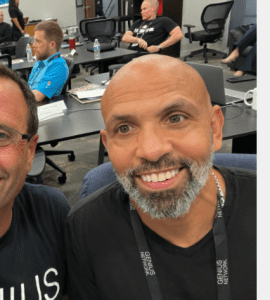 Over the past 34 years, he has worked as a salesperson in numerous industries and depended primarily on the phone to make sales.
Over the past 34 years, he has worked as a salesperson in numerous industries and depended primarily on the phone to make sales.
David had a rough childhood and endured the kind of family struggles that stop many people in their tracks.
David however turned those challenges into opportunities by finding strength through his hard work, resilience and perseverance, and uses the same skills as a father, business owner, coach and husband.
David’s passion for helping others extends beyond sales.
Over the years he’s worked hard to not only shape his life into something fulfilling and positive, but to show others they can do the same, regardless of their circumstances.
In his free time, David speaks at schools and graduations to share his story and inspire both children and adults.
David founded Hill Team Associates, a division under Keller Williams Realty, where he currently serves as CEO. This is where he realized his passion for helping salespeople improve their skills to advance their careers. #1 Ranked Team in the entire MLS in 2016. Sold over 1000 homes.
David’s drive and talent enabled him to rise through the ranks of KW and qualify as a member of the “Gary Keller Private Mastermind”, which is comprised of the top 100 agents at the firm, who get to mastermind with Gary, the founder of Keller Williams, four times per year.
